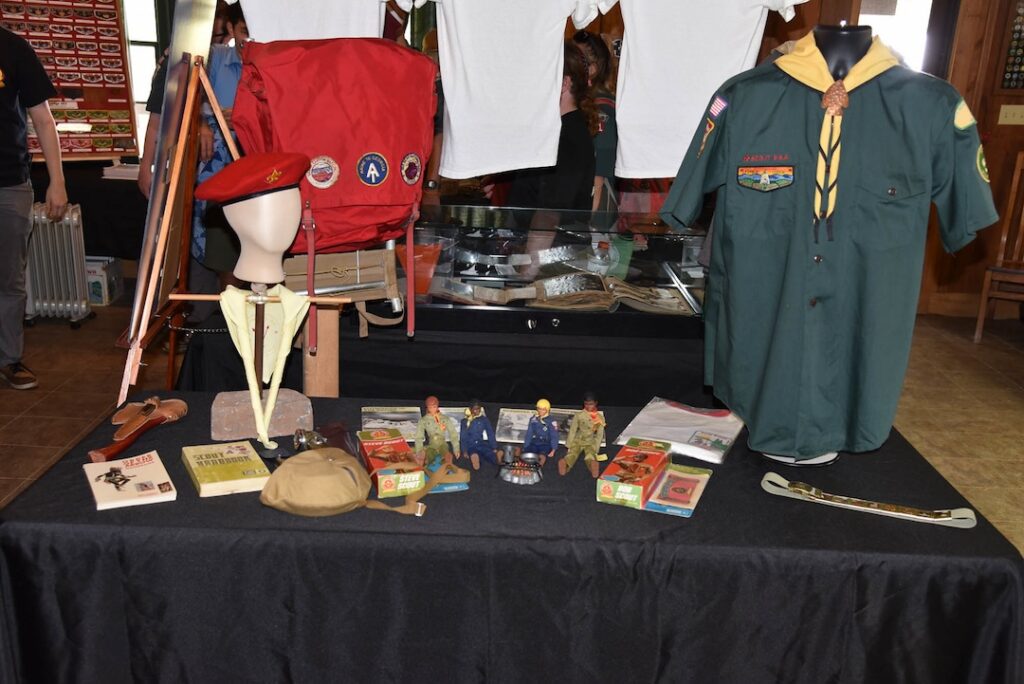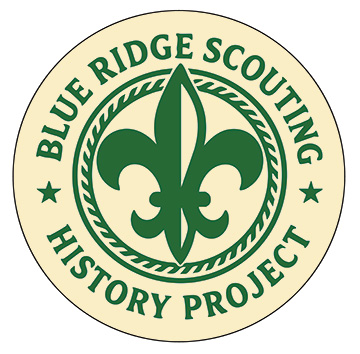“Good Evening, scouts and scouters…”

The case for preserving scout history is an easy sell. For untold thousands of us, there was a youth camp experience in our childhood which simply cannot be forgotten – for as long as we live.
The local Boy Scout council began in the Roanoke, Virginia, area in 1915 and started conducting a summer camp program almost immediately. Since that time, scouts in this region have witnessed no less than three incarnations of Camp Powhatan, two incarnations of Camp Ottari, a short-lived Claytor Lake Aquatics Base, and a nationally-recognized High Knoll Trail Program. Other programs of the Blue Ridge Mountains Council (Roanoke, VA) have included Mountain Man, Voyager Trek, New River Adventure, Brown Sea Island (for first-year campers) and others.
Many scouts in our council were served by the Piedmont Council’s Camp Monacan, as well as other predecessors. This council merged with Roanoke’s Blue Ridge Council in 1972. Also of note, African American scouts during the segregation era attended Camp Snow Creek in Sontag, Virginia. This era lasted through the 1960s, until the council camps became integrated.
“High above the Big Max waters, in among the trees,
floats the flag of old Camp Powhatan, gently in the breeze…”
The Blue Ridge Scouting History Project is coordinated by Roanoke scouter Stephen Warren, who also edits and curates this website (natawhop.org). Warren is a registered scouter with a local troop, with over 40 years in the Boy Scouts of America, now Scouts BSA. The project is not directly connected to, nor is it a product of, the Blue Ridge Mountains Council, BSA.
The project, and website, is an independent, self-funded initiative offering outreach, education, and preservation. The hope is that it may become a structured not-for-profit organization at some date in the future. Until then, the intent of this project is to create a large impact with a minimal budget.
If you are interested in helping, or donating artifacts (photos, scrapbooks, and early papers are especially desired), please use the Conact Form on this website to reach out.

